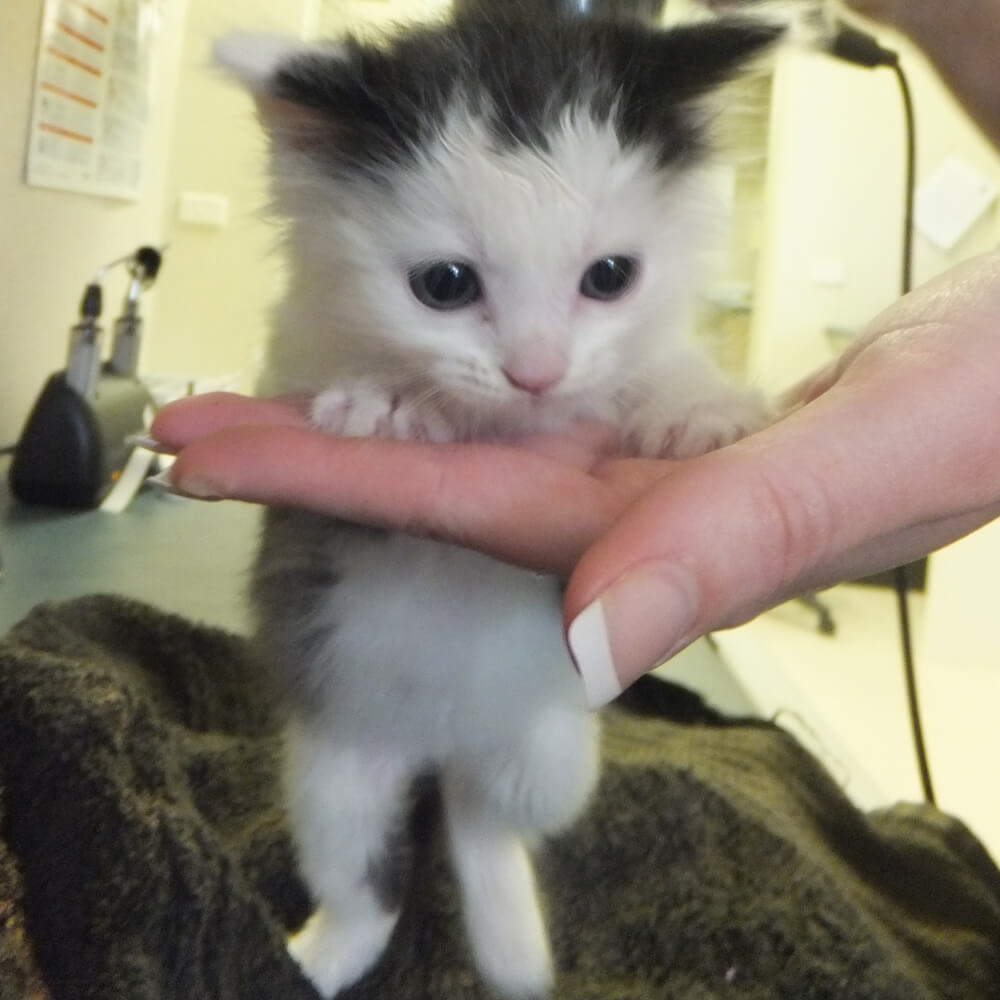Kitten Care
Your New Kitten
Congratulations on your new kitten! There is a lot of information to take in at this age, which can be daunting. Listen to our summary below and let us help get you and your kitten off to a great start as a new family!
Vaccinations
Vaccination provides your cat with protection from disease and reduces the spread of disease between cats. With a F4 vaccine a cat is vaccinated against feline panleukopaenia, feline viral rhinotracheitis (feline herpesvirus), feline calicivirus and chlamydiosis and is generally recommended for both indoor and outdoor cats. Cats that spend most of their time outdoors are likely to come into contact with other cats and be exposed to a variety of infectious disease. If you feel your cat spends time outdoors and has a chance of being bitten by another cat, vaccination against feline immunodeficiency virus is also highly recommended. Following vaccination the body produces antibodies that protect it against disease and illness. Kittens first receive protective antibodies when they drink colostrum, a special milk that is secreted by a vaccinated mother within the first twenty-four hours following birth. Unfortunately these antibodies are only present for some weeks, after which your kitten is susceptible to disease. It is important to look for signs that may indicate infection including sneezing, discharge from the eyes, vomiting and diarrhoea. Kittens can be vaccinated from 6-8 weeks of age, with boosters administered at 10-12 and 14-16 weeks of age. Once the primary vaccination course is complete, an adult requires annual revaccination.

Intestinal worms
Hookworms, roundworms, whipworms and tapeworms build up in the intestines and are passed in your cat’s faeces. These worms can not only stunt the growth of your pet, but some can be passed onto other pets and people in the house. Therefore deworming your kitten fortnightly between 2 weeks-3 months of age and then monthly between 3 and 6 months of age will minimize the chances of disease. Give your pet a deworming treatment every 3 months from 6 months of age onwards.
Heartworm
Unlike dogs, cats are relatively resistant to heartworm infection. Although there is a reduced likelihood of infection in the cat, the worms can cause serious disease and treatment can be challenging. Protecting against infection is certainly better than being faced with its cure and with the availability of flea and mite preventatives that include heartworm in their spectrum of activity, can be easy as administering a single monthly medication against all of these invading parasites.
Fleas
Flea dermatitis is the most common skin-condition affecting pets. Itchiness and scratching can lead to hair loss and obvious inflammation of the skin. If swallowed fleas can also result in infestation with the tapeworm. Cats and dogs are infected with the same flea species and so it is important all pets in the family are treated. Only a small number of fleas are required to produce an intense itching reaction. Many medications are now prepared to protect against fleas, intestinal roundworms and heartworm.
Microchips
Microchipping is a quick procedure that allows pets to be identified by veterinary clinics and council authorities. It is now a legal requirement that all pets newly registered in Victoria are implanted with a microchip. Local pounds find lost pets everyday and are able to get in contact with their owners due to the presence of a microchip.
Nutrition and care
A feeding routine should be established so that your cat has a designated place and bowl from which it is fed. A good diet and teeth brushing can reduce build up of bacteria and food debris that cause bad breath, gingivitis and lead to loosening of teeth. Accustom your cat to routine care including teeth brushing and grooming and if he or she is going to spend time indoors ensure that you establish areas of the home that your cat can make its own. Cats can be trained and enjoy playing with objects on which they can practice their chasing and pouncing skills. Interactive cat toys are available for purchase at the Vet Hospital, and these help alleviate boredom which can lead to other behavioural problems. In introducing your pet into its new home it is important to understand basic cat behaviour and build an understanding your cat’s behaviour.
Please Contact Us to book an appointment.
